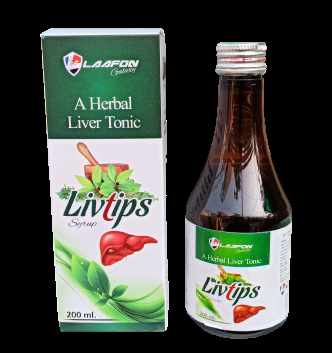Unveiling the Power of Pantoprazole Tablets IP 40 mg
Pantafon-40 tablet i.e. Pantoprazole is a prescription medicine that is used to treat conditions related to excessive stomach acid production. Pantoprazole belongs to a class of drugs called proton pump inhibitors (PPIs).
It reduces the acid in the stomach. It helps to heal erosions caused by acid in the esophagus. It also prevents ulcers in the stomach and duodenum.
Pantoprazole is also used to treat Zollinger-Ellison syndrome.
Pantoprazole is available in tablets, capsules, and injectable forms only. Pantoprazole Tablets IP 40 mg is the starting dose for adults.
Table of Contents
Understanding Gastroesophageal Reflux Disease (GERD)
Gastroesophageal reflux disease (GERD) is a chronic digestive disorder. It happens when acid present in the stomach flows backward into the esophagus. It is an irritable condition that causes heartburn and sometimes chest pain.
This condition can be treated with change by making some changes in lifestyle such as losing weight, avoiding fast foods, quitting smoking, etc.
Many medicines like antacids H2 blockers and proton pump inhibitors (PPIs) help in GERD conditions.
Conditions like hiatal hernia or LES can only cured by surgery.
Pantoprazole tablets are very effective in the treatment of GERD management.
Mechanism of Action of Pantoprazole:
The mechanism of action of Pantoprazole is divided into two main stages; Inhibition of the Proton Pump and Impact on gastric production;
1. Inhibition of Proton Pump:
Pantoprazole is a medicine that belongs to the class of proton pump inhibitors(PPIs). The function of PPIs is to target and bind an enzyme that is known as the H+/K+-ATPase. These are located on the secretory surface of gastric parental cells. When it binds the enzymes that process is a irreversible process.
2. Impact on Gastric Acid Production:
The proton pump pumps hydrogen ions(H+) from gastric parietal cells into the stomach lumen and creates a highly acidic environment in the stomach. Pantoprazole prevents the secretion of hydrogen ions by inhibiting the proton pump. It reduces the amount of gastric acid produced. The reduction in gastric acid helps to treat all acid-related problems like peptic ulcers, GERD, and Zollinger-Ellison syndrome.
It promotes the healing of existing ulcers and some types of erosions in the stomach.
Medical Indications
Approved uses of Pantoprazole tablets IP 40 mg:-
Pantoprazole 40mg tablets are used for several medical conditions. It is important it should be used under the guidance of medical practitioners.
Short-term uses:
- Erosive esophagitis: Pantoprazole tablet is used to treat erosive esophagitis. It is an inflammation condition of the esophagus that is caused by stomach acid reflux (GERD).
- Gastric and duodenal ulcers: These are open wounds and sores in the stomach.
Long-term uses:
- Zollinger-Ellison syndrome: It is a condition when the stomach produces a large amount of acid.
- Hypersecretory conditions: It is a condition when the stomach produces too much acid.
- Helicobacter pylori(H.Pylori) Infection: Pantoprazole is also used with many antibiotics to treat bacterial infections which are contributing to ulcers in the stomach.
COMPOSITION:
Each enteric-coated tablet contains:
Pantoprazole sodium Tablets I.P. 40 mg
Pantafon-40 Tablet Uses:
Pantafon-40 tablet is used to treat damage from gastroesophageal reflux disease (GERD), a condition in which the backward flow of acid from the stomach causes heartburn and possible injury of the esophagus (the tube between the throat and stomach)
How long does it take Pantafon-40 to work:
Usually, a patient starts to feel better within 2 to 3 days of Pantafon-40 working properly so you may still have some symptoms during this time.
Pantafon-40 (Pantoprazole)Intraction-
Pantafon-40 (Pantoprazole) Tablet may have Interactions with Ampicillin, Atazanavir, erlotinib, nelfinavir, pazopanib, rilpivirine, certain azole antifungals (itraconazole, ketoconazole, posaconazole), amoxicillin, Aspire 81 (aspirin), Aspirin Low Strength(aspirin), azithromycin, ciprofloxacin, Crestor (rosuvastatin), Cymbalta (duloxetine), famotidine, Fish Oil (omega-3 polyunsaturated fatty acids), ibuprofen, levothyroxine Lipitor (atorvastatin), etc. these are possible drugs which can interact with Pantoprazole.
Action of Pantafon-40 (Pantoprazole)-
Pantafon-40 (Pantoprazole) decreases the production of acid in the stomach by irreversibly blocking the actions of an enzyme responsible for acid production, called H+/K+ ATPase. The proton pump is located in the parietal cells of the stomach wall. Both baseline gastric acid secretion and stimulated gastric acid secretion are affected; the degree to which they are affected depends upon the dose of pantoprazole.
Pantafon-40 helps to damage tissues in the esophagus, stomach, and duodenum to heal.
Pantafon-40 (Pantoprazole) belongs to the class of medicines known as proton pump inhibitors (PPIs).
Long-term use effect of PANTAFON-40
Though PPI has minimal side effects and few slight drug interactions it is considered safe for long-term treatment. Pantoprazole is significantly effective both for acute and long–term treatment with excellent control of relapse and symptoms. It is well tolerated even for long–term therapy and its tolerability is optimal.
Brand Name: PANTAFON-40
Dosage Form: Tablets
Composition: Pantoprazole sodium Tablets I.P. 40 mg
Packing: 10*10 ALU ALU
MRP: Rs. 77.00
Also Available;
Ceffon-200 Tablet (Cefixime 200 mg and Lactic Acid Bacillus Tablets)
Pantafon-40 Inj. (Pantoprazole Soium 40 mg Inj. )
Pantafon-DSR Capsules (Pantoprazole 40mg+Domperidone 10 mg tablets)
References:
- Pantoprazole-[NHS(.uk)]
- Proton Pump Inhibitors (PPI)-[National Library of Medicines]
- The gastric HK-ATPase: structure, function, and inhibition-[PMC PubMed Central]
Disclaimer:
Disclaimer: All the information and articles available on this site are for educational purposes only. The information given here should not be used for the diagnosis or treatment of any health problem or disease without expert advice. The advice of a qualified medical practitioner should always be sought for medical examination and treatment.
Reviewed by;

Dr. Yogesh Chaudhary (B. Pharma)
Senior Pharmacist at S.N. Medical College, Agra-(UP)


